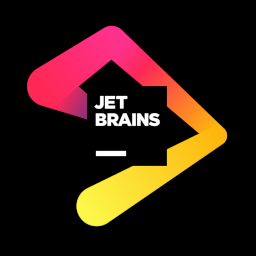

The more I look at that picture, the more confused I get. I’m convinced it’s gotta be AI generated.


The more I look at that picture, the more confused I get. I’m convinced it’s gotta be AI generated.


I’m at about 140k with no college education. 10 years experience. Not really required but certs help tremendously.


Big difference between a low paying boring office job and a high paying one lol.


The name game? Lmao.

Things would probably be different if teachers made more money or if the requirements were higher. For most people who become teachers, it definitely was not their intended career progression. Just something they landed on.

I think for a lot of people, reading of kind of a luxury they don’t have time for. Kind of hard to hone your literacy skills when you’re living hand to mouth.
Then again, I’m a self taught engineer from a poor immigrant family. So who the hell knows.


Basically because every time this happens the burden of debt is passed towards the tax payers. They just built a long toll lane in my city in what was a 2 lane highway. Adding another lane or two would have alleviated traffic immensely. The company that built it owns all profits for approx 50 years. What could have been a 5 lane highway is still two except now you have the option of paying a ridiculous amount of money to not have to deal with the traffic. This is money that could have been spent on improving the city’s other methods of transportation, trains, bicycles, etc.
It doesn’t affect me personally. I ride a motorcycle every day. It’s just painful to see how private interests are almost never in line with what’s best for constituents


If you say you want to work on the infrastructure side of things, that means networking. Routing and switching. Get a CCNA and you can get a job at 75k in most major cities. Few years experience and eventually a CCNP will put you at about 125k.
Right now, the milk and honey of cloud/data center stuff is NFaaS(network fabric as a service), aka SDN(software defined networking), aka IAC(infrastructure as code) but at the end of the day it’s about working and managing infra as a product of SDLC. You’ll need a strong networking foundation, familiarity with one or more programming languages, familiarity with working with SCMs, familiarity with IAC methodologies, familiarity with Ansible, familiarity with Jinja2, etc. If you have all that and you’re a rockstar engineer you’ll be at about 150k as an NFaaS engineer.
Otherwise, other “cloud” roles are going to be 100% server side. Don’t know much about that side of the house.
vi is basically gonna be on every Linux based machine until the end of time. Nano usually needs to be installed, which in corpo environments, you may not have the ability to do that. I made my peace with vim for sysadmin stuff or simple changes like editing yaml files. Vi also has some pretty good features out of the box which are good to learn.


That’s wrong. Qwerty was eventually chosen by the inventor because it was the most efficient design. https://interestingengineering.com/innovation/history-and-evolution-of-qwerty-keyboard


Pvp was definitely an afterthought unfortunately. It was also my favorite part of previous souls games


As a data center engineer of 10+ years, I struggled to understand this at first. In my world, the hardware does a POST before the OS boots and has an inventory of what hardware components are available, so it shouldn’t matter in what order they are discovered, since the interface names should make a correlation between the interface and the pcie slot that NIC exists in.
Where the water gets muddled is in virtualized servers. The NICs no longer have a correlation to a specific hardware component, and you may need to configure different interfaces in the virtualized OS for different networks. I think in trying to create a methodology that is agnostic to bare metal/virtualized OSs, it was decided that the naming convention should be uniform.
Probably seems like bloat to the average admin who is unconcerned with whether these NICs are physical or virtual, they just want to configure their server.


Yup. You’ll see functions wrapped inside other functions all the time. The function on the inside will run first, then the next, etc.
In the example I gave, the value of nam is a string. But it you need to perform some mathematical function to it, it needs to be interpreted as a number. So once the value is received, int() will convert it into a number. Finally, that final value will be assigned to nam. Wrapping functions inside of functions is a great way to write concise code.


I think you need to look into string concatenation, the easiest and best of which is f strings. You could do something like;
print(f’welcome, {nam}')
You could also “add” the strings together.
print('welcome, ’ + nam)
Another thing, when assigning the output of something to a variable, you can think of it as “the result of the code right of the equals sign is the value of the variable”.
The input function assumes that the value should be interpreted as a string, but what if want it to be a number? You can just wrap another function around your input
user_number = int(input(‘what’s the number?’))
Agreed. Smart people aren’t smart because they simply are. They’re smart because they learn how to learn. They learn the recognize that the steps to success involve failure. Being smart is about being willing to feel stupid, since anything new you learn/try you’re going to feel overwhelmed.


Agree on the better testing for ASD. According to the CDC, autism rates have doubled from the year 2000(1 in 68, vs 1 in 150).
The consensus is that ASD is mostly genetic, however, there is some research going into other causes of autism, such environmental/biological causes. Personally, I think growing up with modern technology(kids being raised by YouTube/TikTok) impacts brain development/connections, so there are people with symptoms of ASD that otherwise would be “normal”
The issue with diagnoses like this is that you arrive to the conclusion by looking at the symptoms. And there’s a lot of fucked up things going on right now that could cause more and more people to show symptoms.
i’ve worked on building better habits such as exercise, maintaining social connections, and working through my emotions instead of repressing them, and I’ve noticed that many symptoms that I used to associate with ASD were really depression. Like some sort of coping, catatonic state. I’d imagine that with mental health being what it is, there’s probably a lot of people similar to me. Surprise, did you know ASD is far more common in males? 1 in 42, vs 1 in 189, for females.


Yup. The corruption is blatant, and the worst part is, they don’t even hide it… the threat of impending doom keeps the voters subservient. Instead of pointing out the corruption, we equivocate. I’m not a nihilist or a pessimist and most certainly do not want Trump to win. But refusing to acknowledge the blatant corruption puts us right where we started.
Props to you for actually reading the article. If anyone else who replied to the comment had done the same, there wouldn’t be as many “what-about-isms”
+1 on the book idea. Sounds like a delightful read. I have a similar philosophy as well that’s worked for me. I’ve never once cared about getting credit or props, I make my boss/team look like geniuses. That naturally tends to reward you as well. Great individual contributors are actually pretty rare. Out of hundreds of engineers I’ve worked with closely, only a few were brilliant in the way you described.
If you’re looking for related reading, perhaps for inspiration, there’s a great book called
Quiet: The Power of Introverts in a World That Can’t Stop Talking, by Susan Cain.
I highly recommend it.
I work as an engineer for a huge financial company, so I relate. I was a scrappy upstart who worked himself through the lowest tiers of my industry towards the top. I’m also neurodivergent.
I can speak on for days about how bosses don’t care who’s doing the work as long as it gets done.
As a top performer, you’re likely to feel that people should perform at the standards you set, and your natural first instinct is probably to try to train and educate your coworkers. You soon realize that they either don’t give a shit or they’re offended that you’re giving them advice. No problem, we live in a hierarchical society, so you tell your boss about the problems you face, they’ll have your back, right? Wrong. You’re rocking the boat, and the boss’ job is to keep the boat afloat.
Now, instead of rocking the boat, you start to wonder if you there’s a way you can change the current of the water so the boat goes in the proper direction. That’s where wisdom and skill meet. There’s an incredible amount of depth involved in influencing people and change. I wish it wasn’t the way of the world, but it is. Being brilliant is only half the battle.
I’d like to think you’re right but they’re more of a cult than a political party.